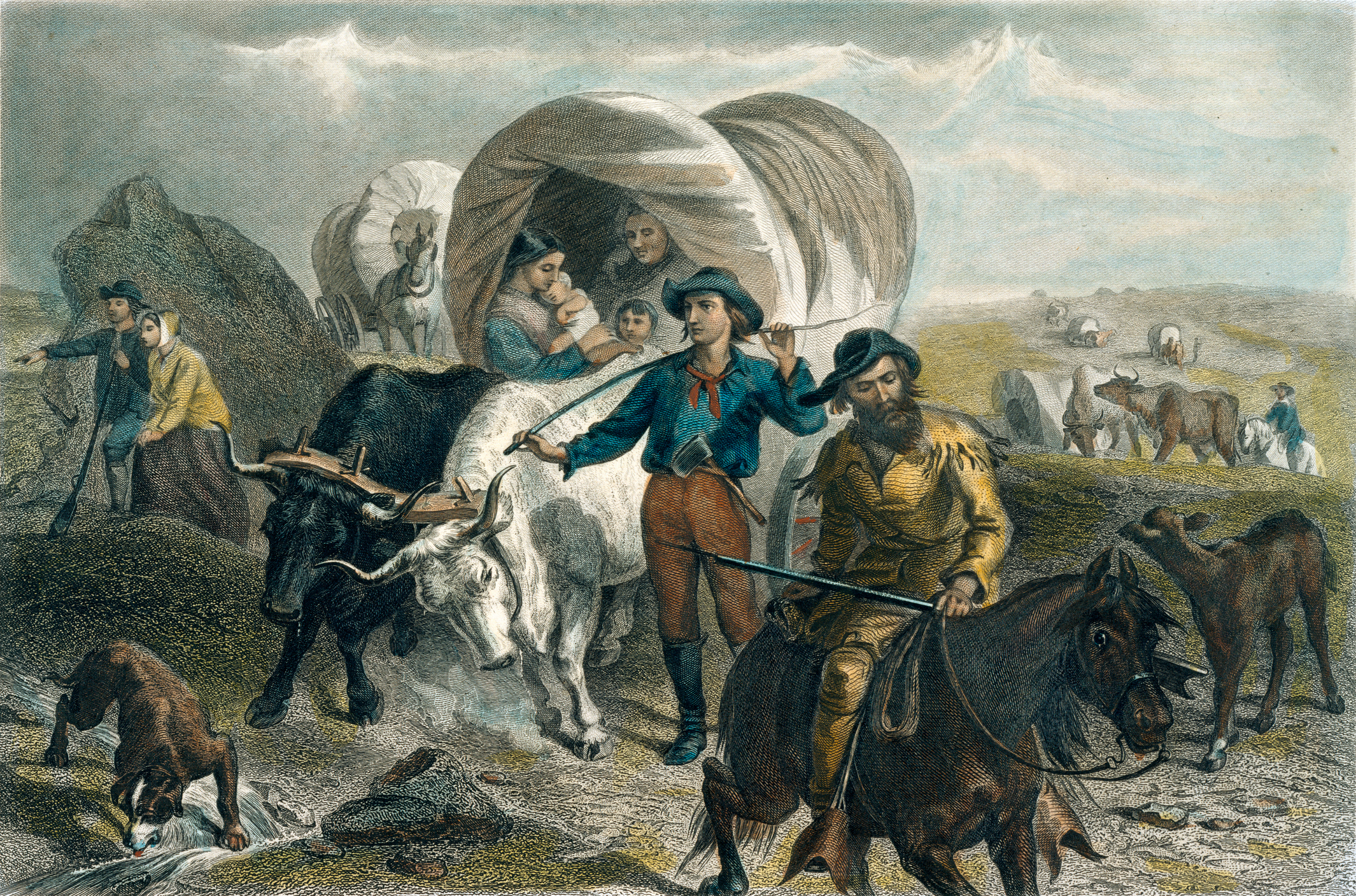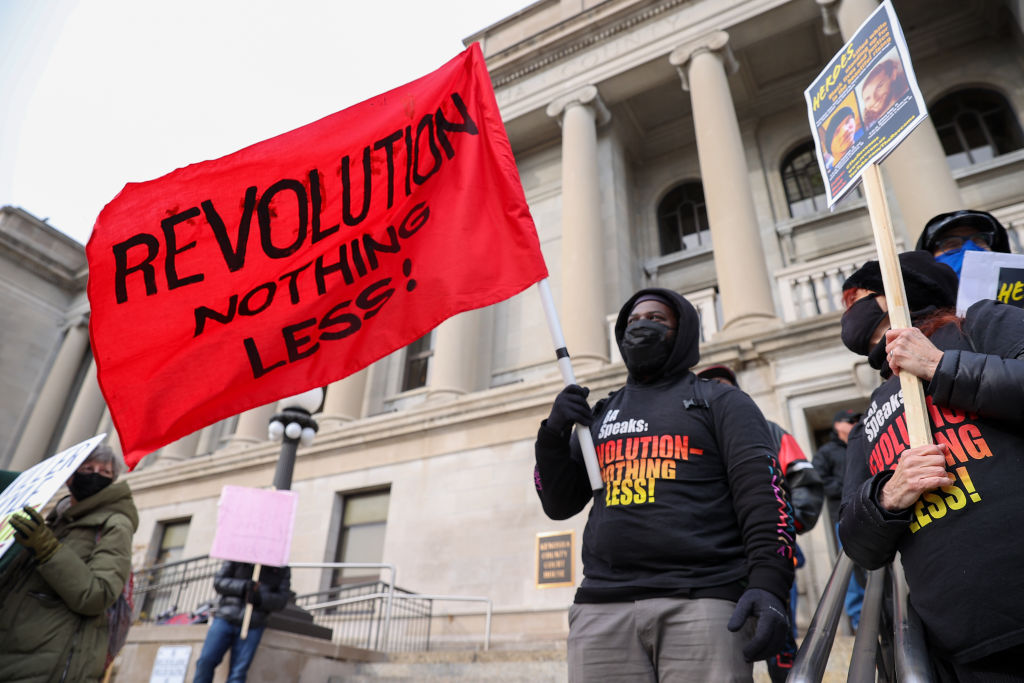Ideology, not race, is widening the fractures in American life.
As Whites Go, So Goes the Nation

Jeremy Carl’s arguments on race should be heeded.
It’s September 13, 1890. The Union Jack is hoisted above Fort Salisbury, a place that will become the seat of the Southern Rhodesian government (and then eventually Harare, the capital of modern Zimbabwe). The men standing at attention beneath its colors are the Pioneer Column, a volunteer force organized by Cecil Rhodes. Here in the African hinterland, these white men spearhead what looks to be the birth of a civilization.
With their settlement came the beginnings of peace and order. Hannes Wessels, who grew up in Umtali on the Mozambican border, wrote that “the native rebellions were suppressed with a mixture of force and diplomacy, but with conquest, the white interlopers put an end to the endemic tribal genocide and quickly insisted upon changing the mindset that killing another human being was a right of might.” The intervention of whites in the region prevented the Matabele tribe from crushing the Zezuru people. Had that occurred, a Zezuru boy named Robert Gabriel Mugabe likely would have never existed. But exist he did. And in time, Mugabe became an African nationalist and a dictator who supported seizing land from whites and justified their persecution in explicitly racial terms. “His journey into the living world was made safe by the white man he would grow to revile,” wrote Wessels.
The example of Southern Rhodesia’s transformation into Zimbabwe is a reminder that the wheel of history turns on irony. The greatest irony in our time is that whites—the people descended from those settlers who carved civilization out of the North American wilds—have become public enemy number one in their own land. No other group has been subjected to so much cultural humiliation and expropriation in modern memory, a long struggle session that whites often eagerly participate in to demonstrate their anti-racist bona fides.
Jeremy Carl is working to educate Americans on both the practical realities and consequences of this dispossession. The argument he presents in The Unprotected Class: How Anti-White Racism Is Tearing America Apart is necessary and cerebral. And if the early reception is any indicator, there is an appetite among Americans for what Carl serves up in those pages.
Indeed, most people understand on an intuitive level what Carl cogently puts forth. They know something is wrong, even if they can’t articulate it or are afraid to do so. The timing of the book, then, seems ideal as this discussion swiftly moves closer to the mainstream of political discourse.
It’s worth reiterating that nothing Carl is arguing is conspiratorial or even hard to prove. The facts and policies are there for all with eyes to see.
In 2021, for example, President Joe Biden announced that his administration would prioritize aid for businesses hurt by the COVID-19 pandemic based on race. In effect, this amounted to redistributing money from whites to nonwhites. But Democrats aren’t alone in backing policies like this. Republicans like Massachusetts Gov. Charlie Baker have also bragged about implementing similar redistributive schemes. Of more than 10,000 small businesses that applied for grants amid the pandemic, Baker said that 95 percent of the awards went to minority-owned businesses. Massachusetts is 74 percent white.
The implementation of these policies, whether in the political or corporate sector, has been accompanied by what Michael Anton coined the “celebration parallax.” Anton defines it this way:
In contemporary speech, on any “controversial” topic—or, to say better, regime priority—the decisive factor is the intent of the speaker. If she can be presumed to be celebrating the phenomenon under discussion, she may shout her approval from the rooftops. If not, he better shut up before someone comes along to shut him up.
Put simply, you are not allowed to notice these things unless you’re celebrating them, like Bloomberg did last September.
Bloomberg lauded that corporate America made good on its promise to hire a greater number of “people of color” after the Black Lives Matter riots. Of more than 300,000 jobs added to the S&P 100, 94 percent went to nonwhites. These hiring numbers could only be made possible by actively discriminating against equally or more qualified white applicants—a civil rights violation for any other group. But there is the rub: civil rights law, intentionally or not, created a new racial hierarchy in this country, with whites at the bottom. What would be considered discrimination against any other group is permissible against whites in the name of diversity, equity, and inclusion.
Much of this has been said before and said better than I could by men like Pat Buchanan and Sam Francis. But only now, when the abuses have become too great and absurd to ignore, does it seem like the way has been opened for change.
This has also made it possible for whites to be reduced to the status of a permanently aggrieved class that is exploited by those who explicitly or implicitly speak to their concerns without offering real solutions, or even doing things that run contrary to their interests. Consider that Donald Trump campaigned in 2020 on what was essentially $500 billion in reparations for the black community in the form of the Platinum Plan. Much of that money would have come from increased federal contracting opportunities. In other words, Trump proposed to enact one of the greatest race-based wealth transfers of our time.
Of course, Trump is not alone in this regard. A new kind of pundit has emerged who seeks to gin up white outrage for monetary gain, like a cadre of Marcus Garveys promising liberation in exchange for likes and retweets. Perilous times lie ahead in navigating this new era in racial politics.
The challenge that people like Carl now face is ensuring that this moment in history and the arguments in his book are not squandered on empty outrage. What happens to whites in this country will ultimately determine what happens to us all. For proof, see Zimbabwe.
The American Mind presents a range of perspectives. Views are writers’ own and do not necessarily represent those of The Claremont Institute.
The American Mind is a publication of the Claremont Institute, a non-profit 501(c)(3) organization, dedicated to restoring the principles of the American Founding to their rightful, preeminent authority in our national life. Interested in supporting our work? Gifts to the Claremont Institute are tax-deductible.
If they don't act, white Americans will soon be subsidizing their own destruction.
Is every nation presumptively illegitimate?
The Left’s racial revenge fantasies are well underway in America.
Noticing reality is the first step toward national renewal.





